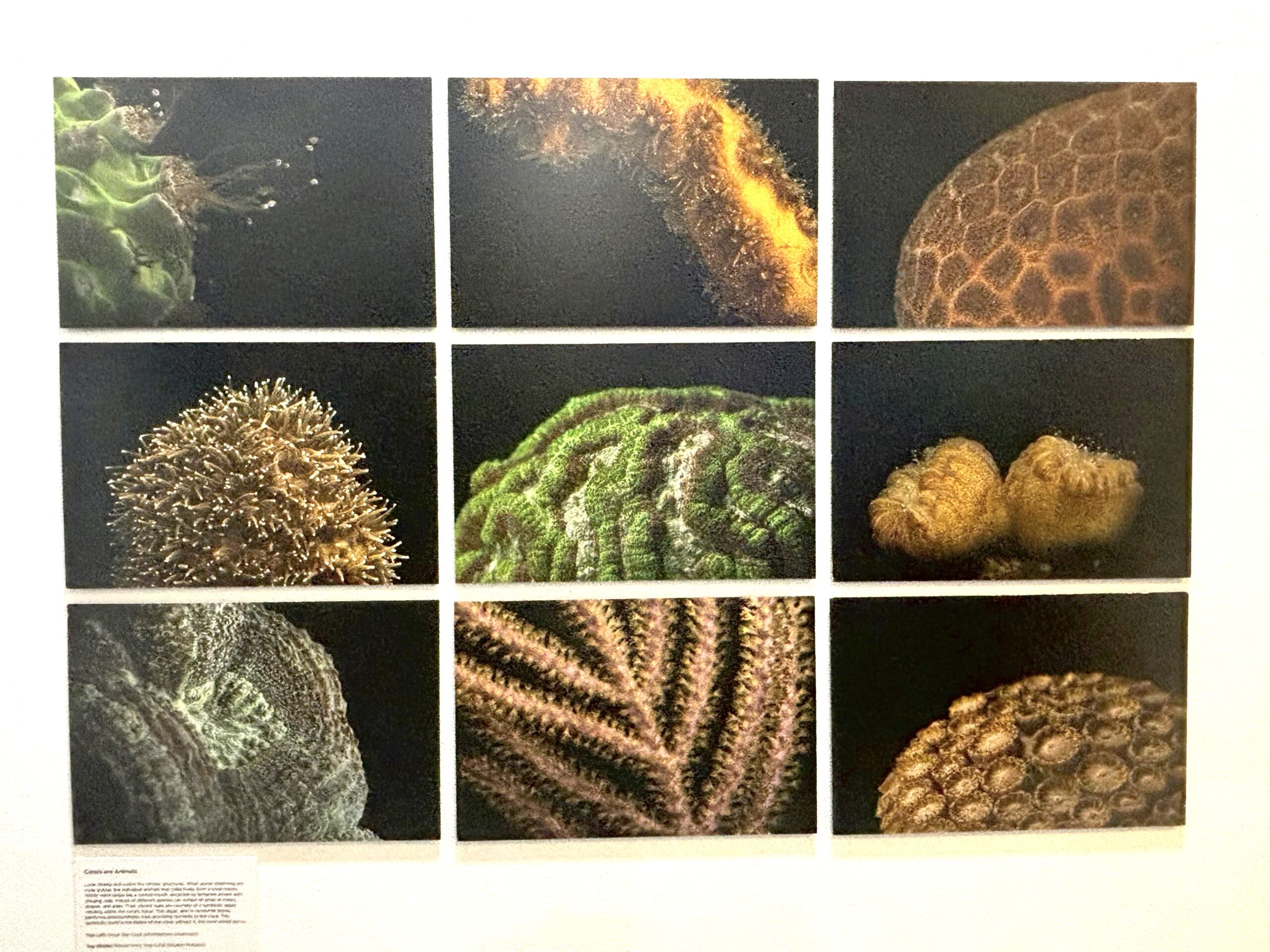
On Saturday, Nov. 23, Reef Reimagined, an underwater photography display, was showcased at the Virgin Islands Children’s Museum. The photos in the art exhibit delve into the chronicles of coral in the ocean. The display was first seen at 81C and the Department of Planning and Natural Resources.
Presenters included Marilyn Brandt, Reef Response director; Dan Mele, coral aquarist specialist and research photographer; Sonora Meiling, marine disease specialist; Nicholas Durgadeen, coral restoration specialist; and Rachel Ionata, coral aquarist specialist. They gave the youthful audience insights into what a floor of the sea looks like.
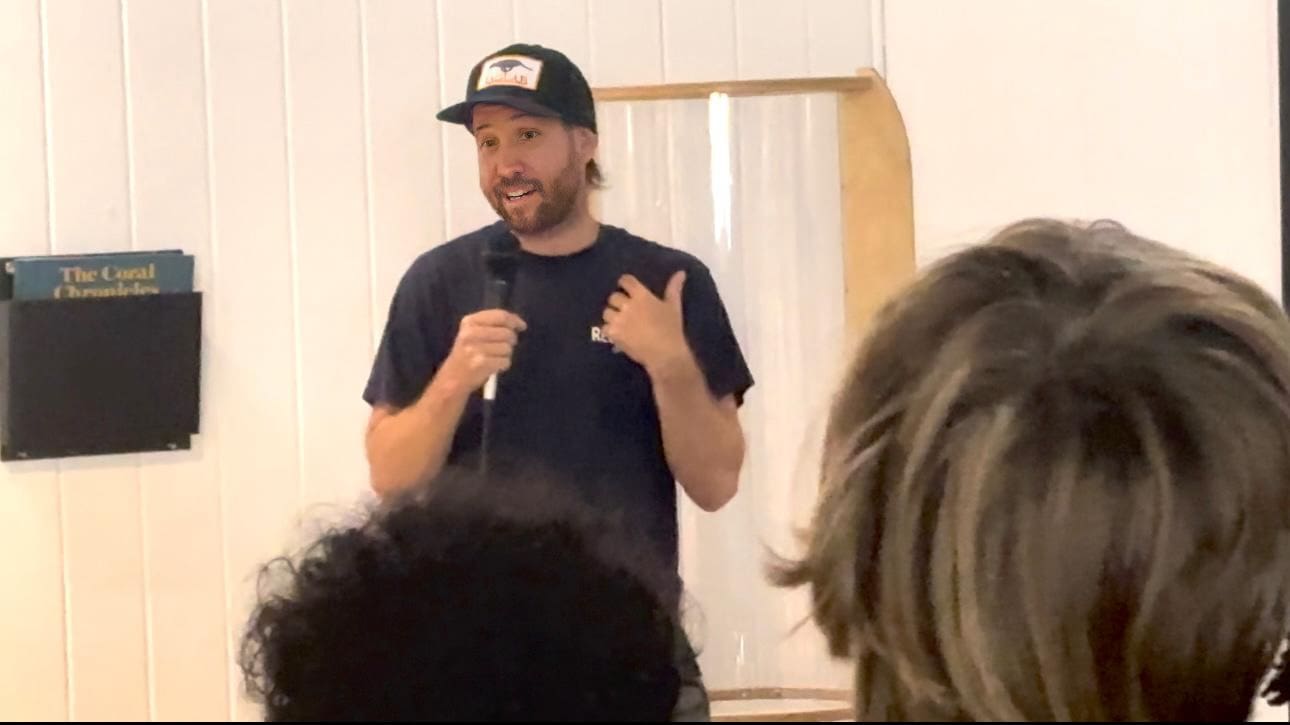
Mele, the research photographer, documents coral reefs and captures picturesque elements of the sea. His goal is to reach a broader audience through photography and educate the public about the significance of coral propagation and fragmentation. The worlds of art and science intersect in his work. “Photography and film were my first love, but I always loved animals, hiking, and watching the nature channel with David Attenborough,” Mele said.
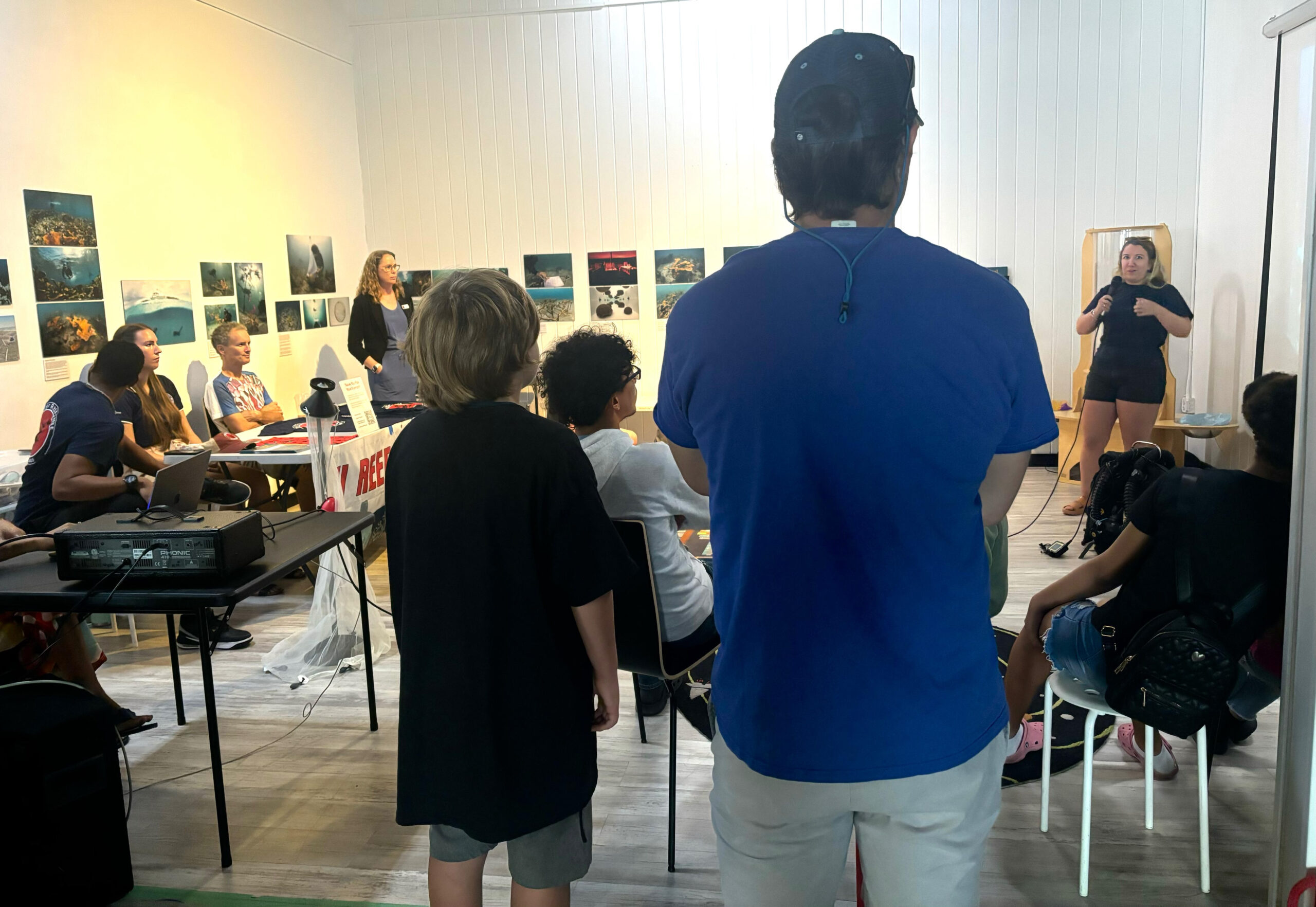
Mele’s first degree was in film production, but his deep love for nature inspired him to capture it. He recalls when his passion ignited: “I grew up in Maryland, and when I was in high school, I used to skateboard a lot until I broke my foot and couldn’t skate for a while. My mother bought me a camera to cheer me up, and I started to film my friends, and that’s when my love for film and photography grew,” Mele said.
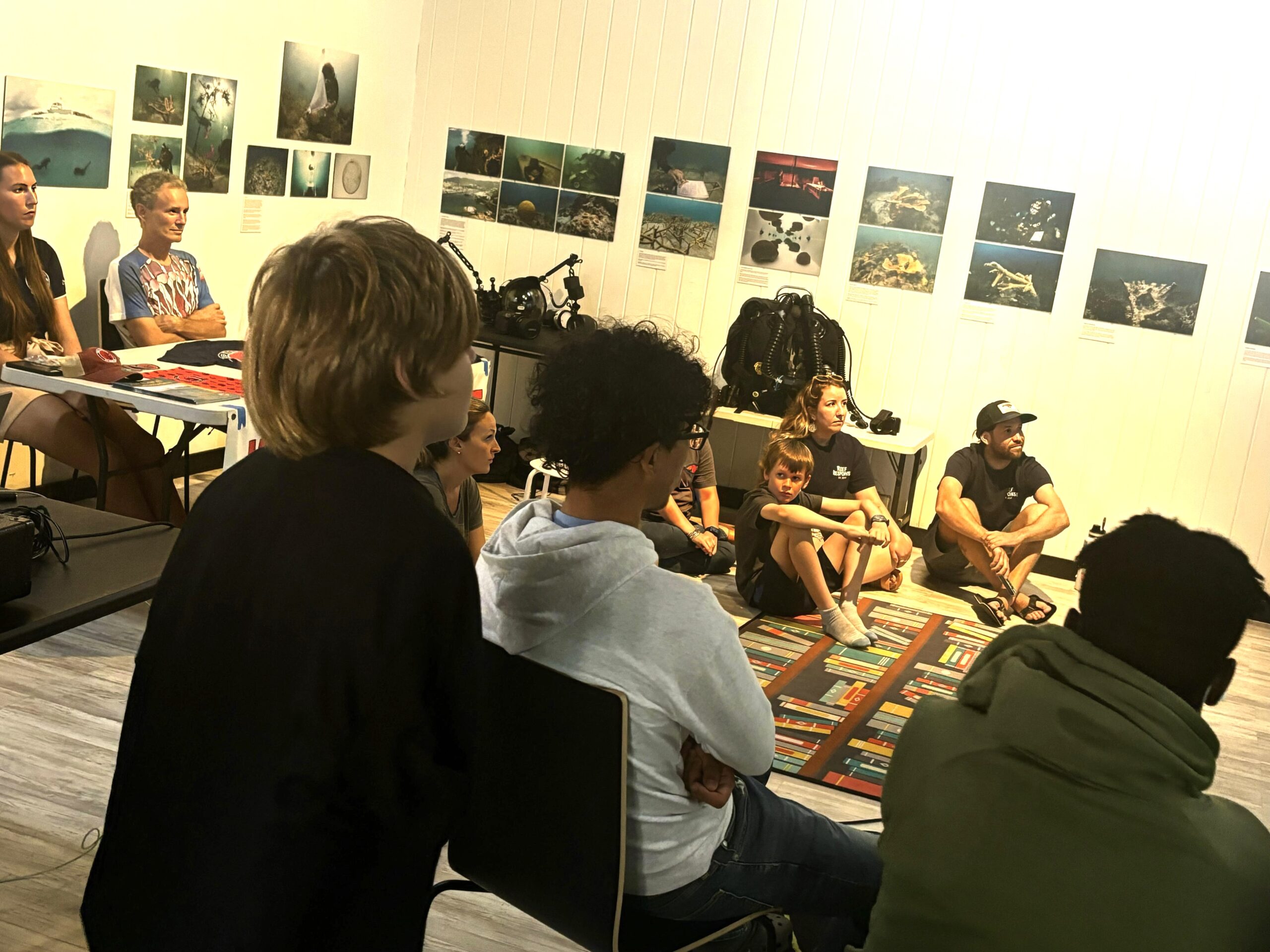
Mele chose photography and media to educate the public about the important work his group, Reef Response, does for the restoration of coral reefs. “Coral restoration is a global project, and there are groups around the world working on coral restoration and preservation daily. We are always learning from each other,” he said. In less than a month, the members of Reef Response will head to Mexico to participate in the world’s largest coral restoration conference, Reef Futures, with scientists from around the globe contributing to major developments in coral reefs.
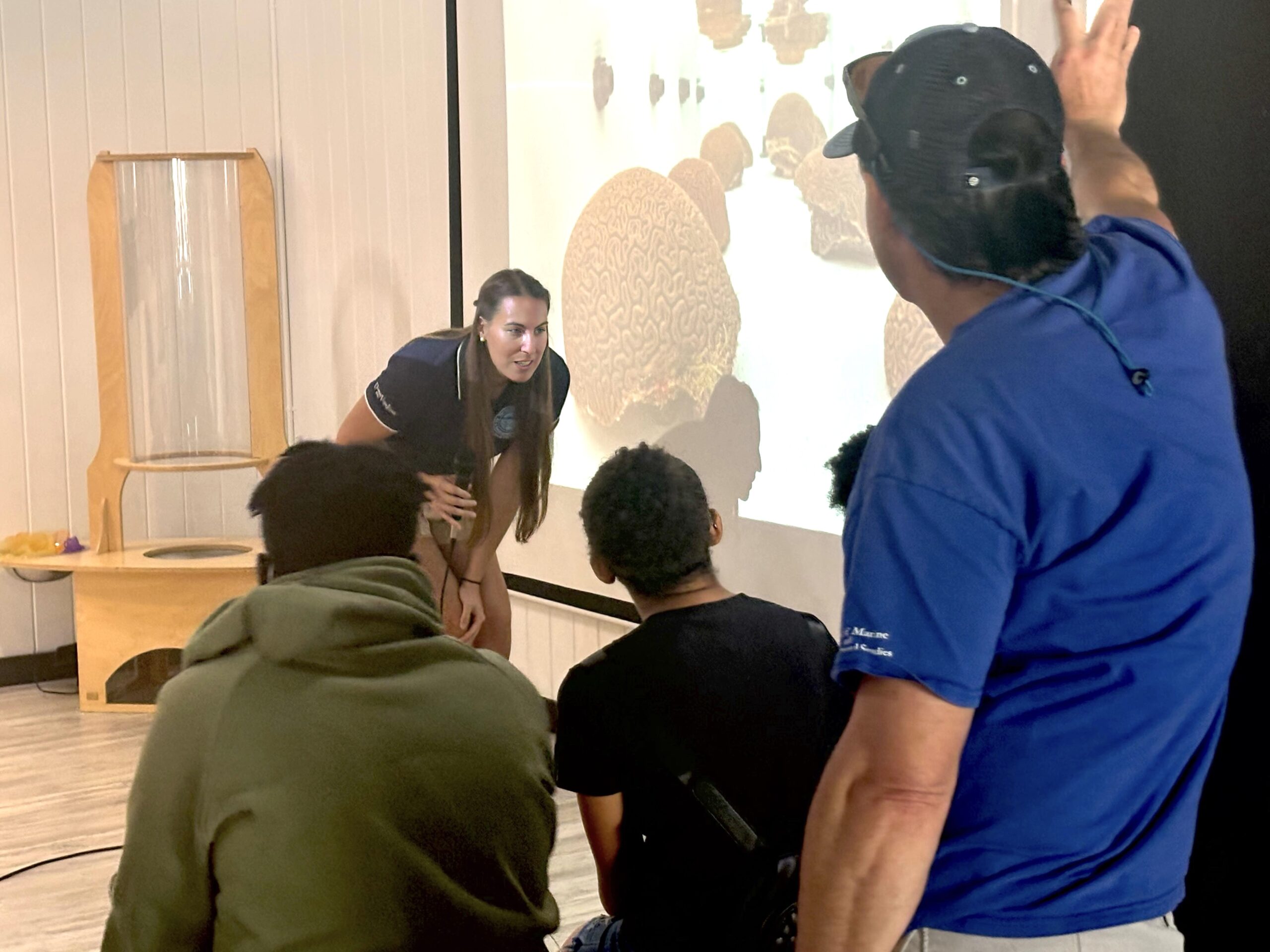
Brandt, research professor at the University of the Virgin Islands and director of Reef Response, focuses much of her research on coral disease. She stresses the importance of preserving coral reefs to prevent new diseases from emerging. Brandt has dedicated her life’s work to testing and finding new techniques to keep coral healthy. “We want everyone to be mindful of the waste that goes into the ocean, such as chemicals and plastics, which are ways locals can contribute to protecting the coral reefs and the animals around them,” Brandt said.
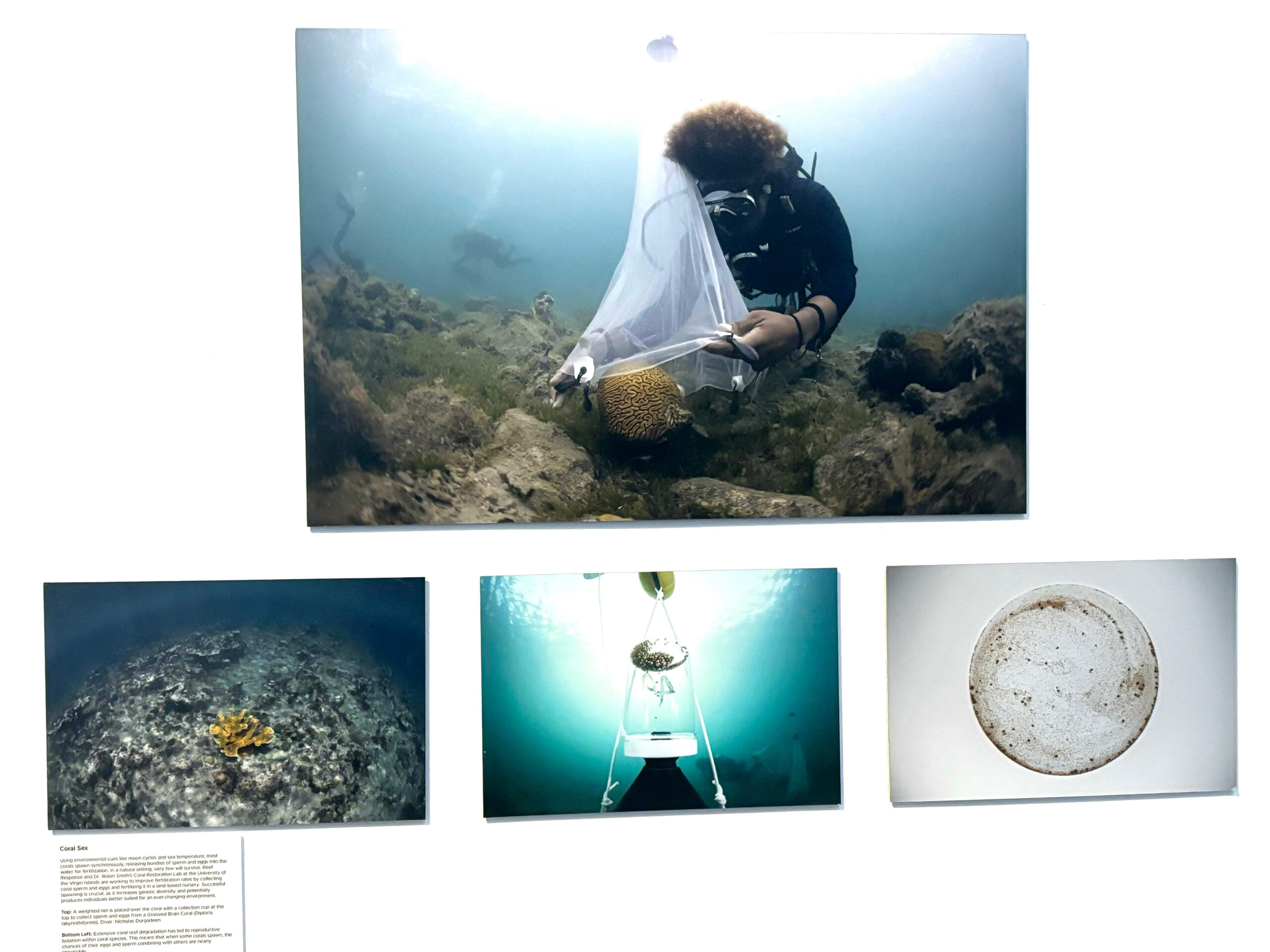
Brandt explains that understanding coral reefs and how our actions impact the world is crucial for Virgin Islanders. Everyone has a role in keeping our oceans pristine and clean for locals and as a tourist attraction. Her passion for her work is something she’s eager to share with anyone willing to learn about research and the inquisitiveness that science demands. “The best part of my job is the fieldwork and diving. I also love taking students with me and exposing them to a world they haven’t seen before, especially when I see the passion I still have ignited in them, too,” Brandt said.
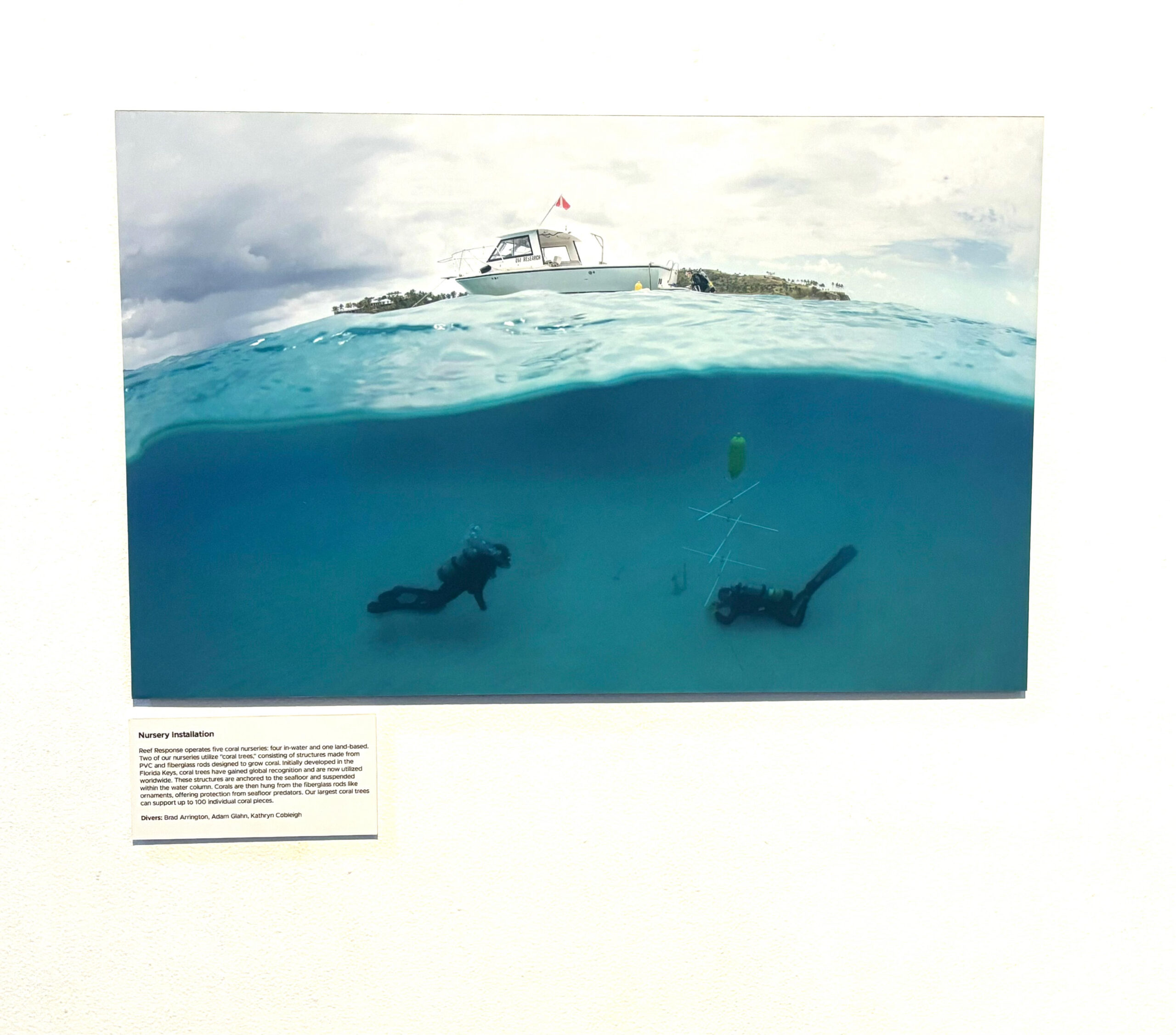
Other divers at the exhibition shared similar sentiments about their profound passion for underwater life. Nicholas Durgadeen, a coral restoration specialist and diver at the art exhibition, showcased a 5-foot net that captures gametes from coral, which they take to their land-based facility to propagate. Durgadeen expressed the importance of curiosity in science and how inspiration can go a long way. “I want the younger generation to be curious about what’s going on in their backyard and for everyone to be mindful of pollutants in the water,” he said.
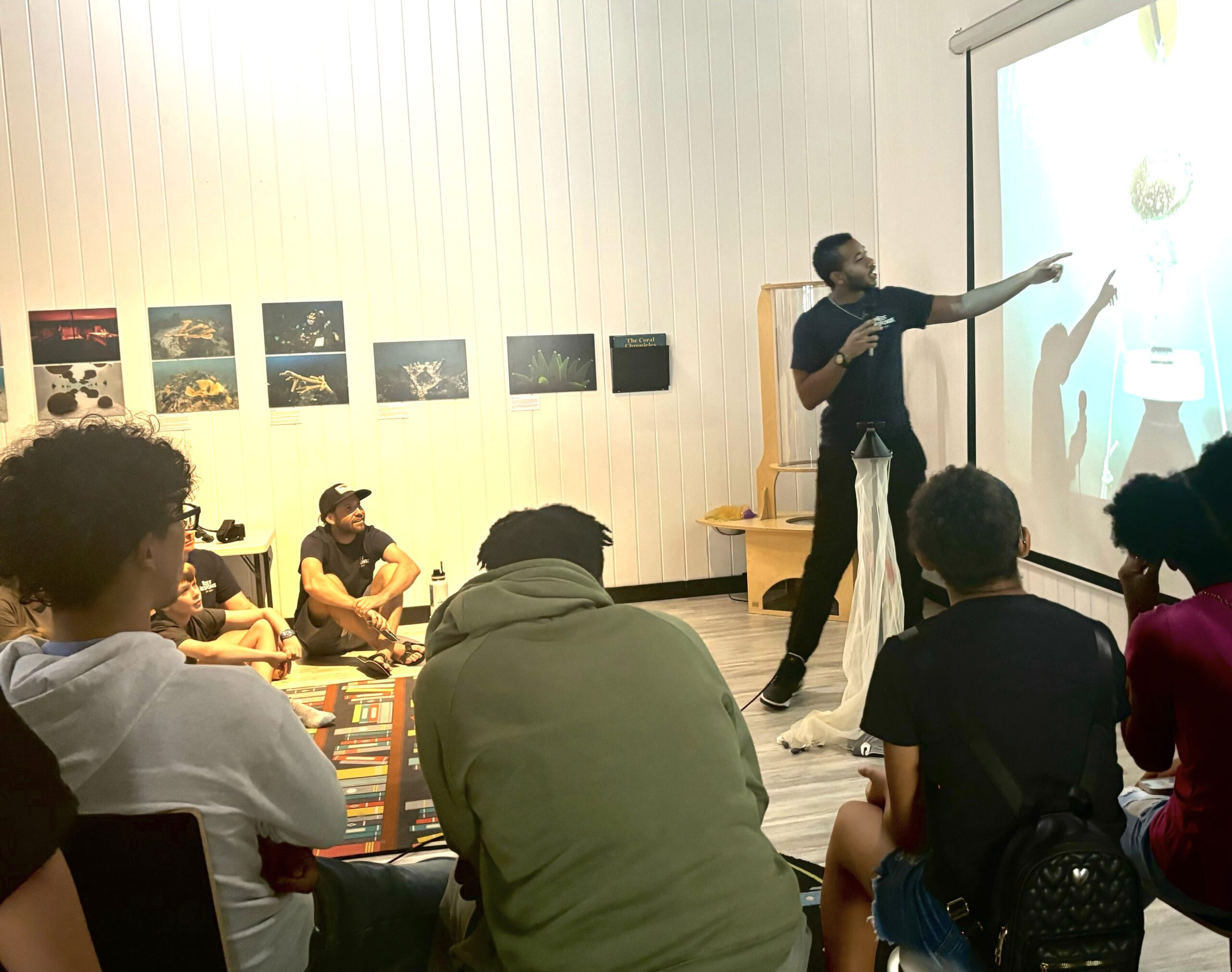
Reef Reimagined has made its presence felt in multiple galleries, with its next home at the Center for Marine and Environmental Science at the University of the Virgin Islands.
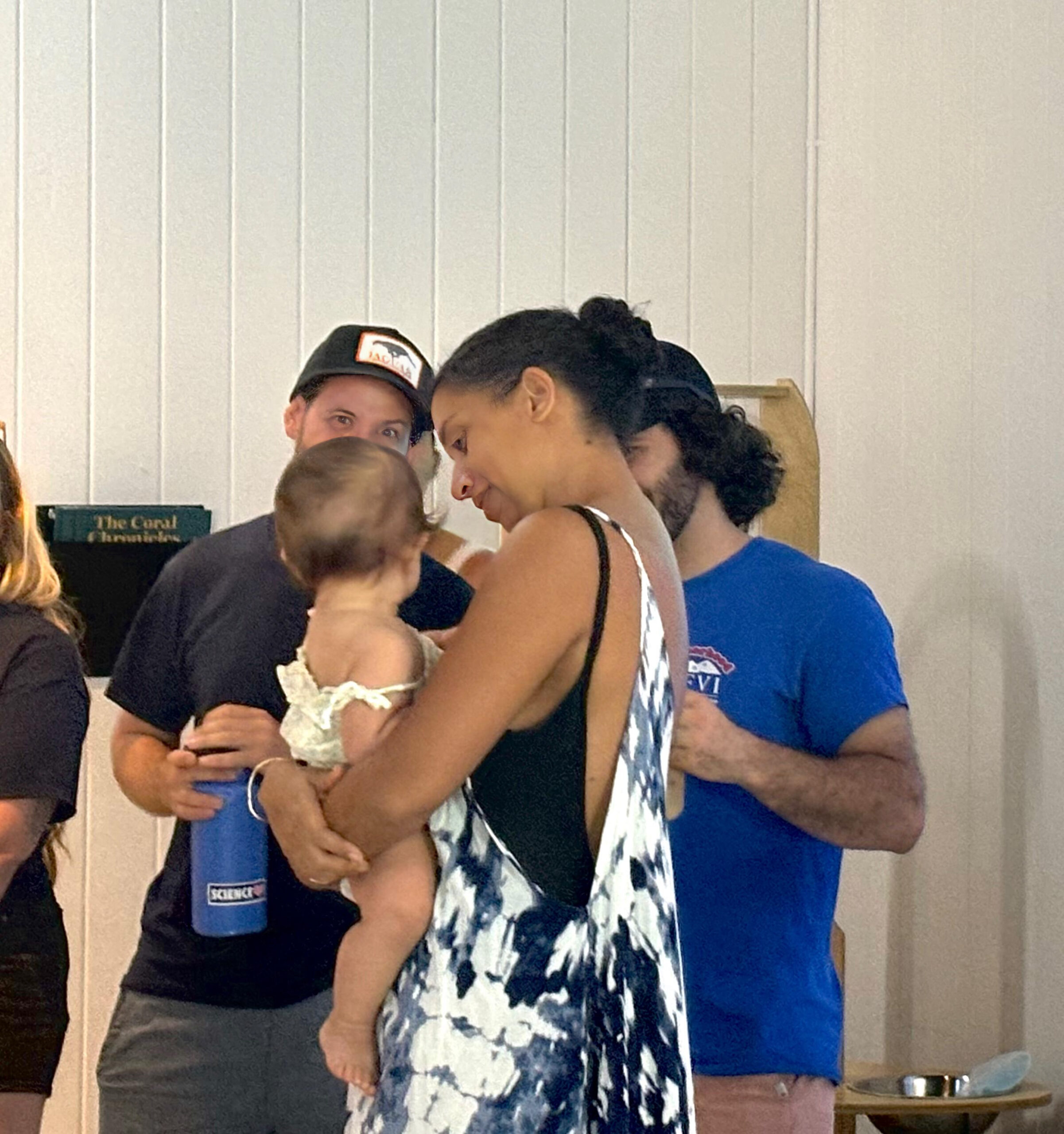
Mele emphasized that locals, students, or anyone can visit to see the exhibition if they missed it at previous locations. “The reefs are in your backyards; they have been around for thousands of years, long before people lived on the islands. We really want the next generation to appreciate these environments. There is no doubt that coral reefs can change a lot, and many are worth protecting. We rely on coral reefs; they protect our coastline, and they are just beautiful,” Mele said.
Interviews
Dan Mele
Marilyn Brandt
Nicholas Durgadeen














